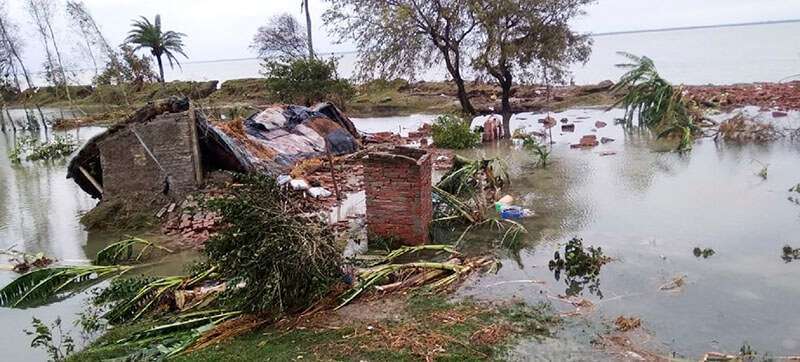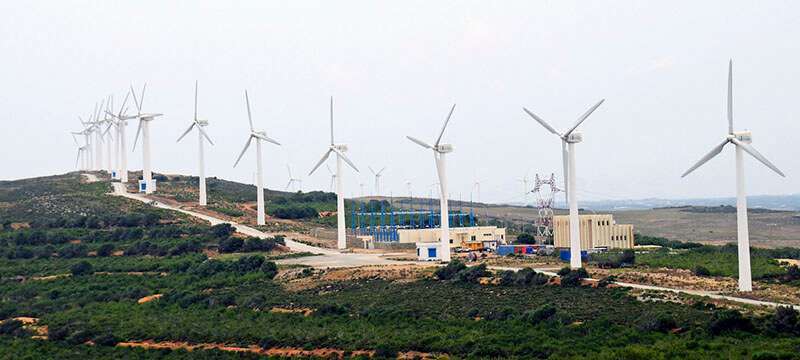International Monetary Fund proposes progressive taxation to deal with inequality

In the wake of the socio-economic crisis that is generating the coronavirus pandemic, there is a greater need than ever to reform tax systems and reduce tax evasion and fraud by ensuring an economic recovery in which all people pay their fair share, says the International Monetary Fund.
Taxes are used to pay for many of the activities that support the functioning of societies around the world, such as schools, health care and social services. The money collected through taxes is crucial to maintaining these services during the crisis caused by the COVID-19. However, business closures and consequent job losses caused by the pandemic have led to a collapse in public revenue collection.
As a short-term emergency measure, governments have implemented stimulus plans and a wide range of measures to help businesses and citizens recover. The financial institution is overseeing these programmes, which range from a $540 billion European Union fund, which includes funding to assist the most affected States, to a "cash-for-work" programme in Cambodia or a six-month reduction in utility bills such as water and electricity in Samoa.

At the same time, the Fund made available to countries with developing economies emergency funds for COVID-19. The financing agency provided some $250 billion in financial assistance and debt relief to some 77 member countries.
In April, it approved Afghanistan's request and provided, through an emergency aid package, some $220 million to help address the trade disruptions that have severely damaged the economy. Another Asian country, Bangladesh, received some $732 million in aid after demand for one of its main exports, textiles, plummeted.
To avert what the Fund described as an "immediate and severe economic disruption" caused by the pandemic, Egypt received a package of more than $2.7 billion in aid to alleviate some of its most pressing capital needs. These include health spending, social protection and support for the most affected sectors and the most vulnerable groups.
In the long term, however, these interim measures will not be sufficient to address many of the underlying problems of the global economy, including growing inequality within countries and the ability of multinational corporations to minimize corporate taxes legally.

The Fund's Deputy Director of Fiscal Affairs and tax expert Victoria Perry told UN News that in planning for recovery from the pandemic, countries should consider addressing inequality by implementing more progressive tax systems.
"This means that the average tax rate increases, as does revenue. The amount of the tax burden for the richest is something that each country must decide, but it is certainly problematic when tax rates for the wealthiest are lower than for the poorest. It is also often the case that better-off people, who have access to tax advice and more sophisticated financial matters, take better advantage of exemptions or loopholes in the tax system than people who rely solely on wages. Closing these options can make the system more equitable and, depending on the country, may be more effective than structural tax rate reforms," she said.
The growing gap between rich and poor was already a concern before the COVID-19 pandemic. While inequality has decreased between countries, and in some countries such as China enormous progress has been made in raising income levels over the past decades, inequality within countries appears to be increasing.
For Perry and the Fund, personal income taxes play a key role in determining the progressiveness of the tax system. Perry adds that another option for some developing countries with problems in collecting and enforcing personal income tax is to consider taxing property: "While income is relatively easy to conceal, luxury houses are very visible, and capping tax-free means that owners of cheaper houses can be exempted or freed from paying it".
Income inequality differs greatly between countries, but studies show that creating a fairer society is not just about redistributing wealth but, as Perry explains, about implementing measures that help people get sustainable and decent work.
"Globalization has affected all free economies, but countries with effective systems of tax and benefit redistribution have been able to avoid sharp increases in inequality. However, redistribution alone is not enough. It has to be combined with a host of other measures, such as retraining and employment support". When thinking about equity, therefore, it is important to consider both sides of the equation, not only taxes, but also how money is spent to improve life.

Some studies estimate that in the richest countries about 10% of corporate tax revenues are "lost" to tax evasion by multinationals. It is estimated that in developing countries the losses are even greater in relation to national income. "Another problem is that the international tax system can shift the tax base from the home country," says Perry.
"So if a mining company is based (tax residency) in a richer country, but mines in a less developed economy (that of the home country), that country may not get most of the tax revenue. When talking about 'fair and equitable distribution', many observers refer to the home countries getting more benefit.
The current international debate on the taxation of large digital technology companies, many of which are based in the United States, is similar, but the 'digital' economy is even more difficult to deal with. Although these companies do business and make money around the world, where their presence is more virtual than physical, under the current system countries are not allowed to tax profits.
"We are in this huge economic crisis, and countries have to make major adjustments to their economies. But inequality itself is also a kind of major global problem. Therefore, this is also an opportunity to change tax systems for the better, to make them fairer and more equitable, and to promote less polluting and more sustainable economic activities.








